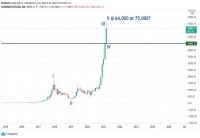|
FUTURES LAB Why Don't CTA Assets Grow? With notable exceptions, commodity trading advisors tend to manage small amounts of capital. In a roundtable, we asked Bucky Isaacson and Frank Pusateri why this is the case and what advice they would give to CTAs who want to expand their business. Mr. Isaacson is president of Future Funding Consultants and a pioneer trend follower. Mr. Pusateri is executive vice president of Fall River Capital LLC and a veteran fund marketer. Together they helped found and develop the predecessor of the Managed Funds Association. Their contrarian view of the industry should be an eye opener. Opalesque Futures Intelligence: Some people argue that investors should consider managed futures a separate asset class and allocate more to it. Is it happening? Frank Pusateri: I don't think so. This strategy is poorly understood by clients. There is talk now of more money moving into managed futures but once the stock market comes back, that talk will disappear. Right now CTAs are getting redemptions despite their stellar performance in 2008, because many investors need cash and commodity pools and managed accounts are liquid—they're truly like ATMs! Bucky Isaacson: Talking to people in the institutional investor world, it's clear they're not looking at this industry any differently than they did before. For instance, they've known for years that CTAs offer greater transparency than hedge funds. Why should that make a difference now? OFI: But don't some CTAs attract a lot of investment? BI: Very few CTAs manage more than $500 million. They can't make the transition to managing big money. There are a few exceptions, like Paul Tudor Jones, who started as a CTA and built a hedge fund business, and Campbell and Winton who still market themselves as CTAs. OFI: What differentiates those managers? FP: It's not just a matter of performance, although that has to be there. Those who make the transition to a large shop create hedge fund businesses. They know how to present themselves to investors as reliable money makers with an organization to support the trading. BI: To have access to big money you have to show you have operational stability. So you have to spend money to hire people and build a corporate structure. Many CTAs don't know how to build a business. They focus on trading and don't pay attention to the business side. They are not set up to deal with clients, don't have a business plan. Even their web sites are not good. OFI: What should CTAs do? FP: They have to realize how important fund marketing is. Take presentations — if your presentation looks like everybody else's, the investor has no way to distinguish you from the crowd. You have to spend time to build relationships. Meeting a fund of funds representative once or twice a year is not enough. You have to contact several hundred people to raise money. It is now more complicated and expensive than it used to be. BI: CTAs need to decide how much time and money they can spend on marketing the fund, then make a plan. There are different types of marketing, depending on the resources available. For instance, marketing overseas is very expensive. If the budget is small, the plan may be to build relations with local people. OFI: Are there other common CTA mistakes? FP: Many CTAs stay with their original program and keep trading in the same way. I believe that at some point the program stops working or it's reward-to-risk characteristics are no longer competitive. Long-term success requires that the trading style evolve as the competition gets more sophisticated and/or markets change. OFI: Would you identify some encouraging developments? FP: Fund seeders did not need to look for CTAs in the past, but maybe now they will. The lack of CTA incubators has been a major problem—there's little money to develop new talent. Another good thing is that sophisticated allocators now put CTAs and global macro funds into the same bucket. Pensions allocate much more money to hedge funds than to CTAs, so the latter have a better chance if they're together with global macro. Splitting them is generally an arbitrary distinction. |
|
This article was published in Opalesque Futures Intelligence.
|





 RSS
RSS










